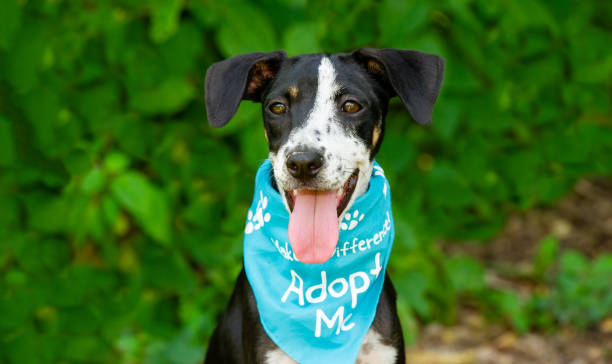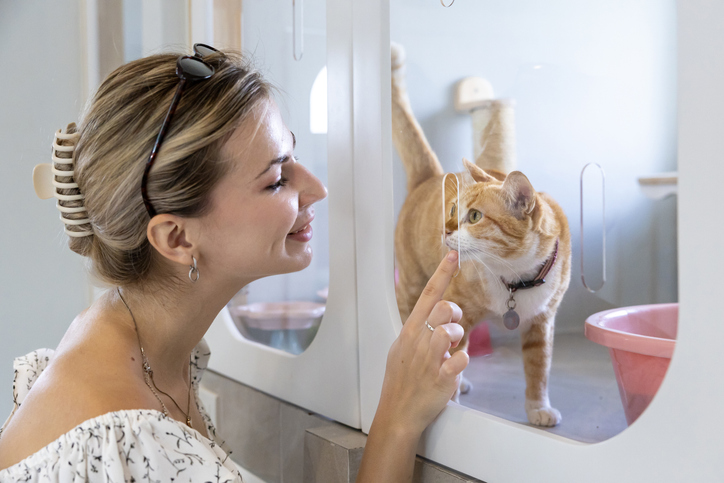
Being immeshed in dog boarding, grooming, daycare, and training at The Ranch Pet Resort and Spa, we often see how much bonding occurs between a person and her dog. Even when a dog is part of a loving family, the dog attaches to one person over another.
Dogs recognize when their chosen”hooman” is at The Ranch to pick him up as evidenced by the tail wagging, whole body shakes, and vocal shrieks of pure delight and relief.
Those of us in rescue also know that when a dog is surrendered, he will often keep looking for his person or ones that look like his person as bonds last a lifetime.
So what is it that makes dogs bond to a certain person? Why does a dog choose one family member over another?
We set out to do some research, and this is what we found.
Dogs Bond Over Trust, Comfort, and Experiences
At The Ranch Pet Resort & Spa, we see bond connections all the time. While dogs are loving by nature and can form strong relationships with many people, they often have one person who feels like “home.”
One of the biggest influences is early experiences. Dogs tend to bond deeply with the people who were there for them during puppyhood—especially during those first few months when they are learning what safety and care feel like. Those early impressions can last a lifetime.
Another important factor is positive experiences. Dogs naturally gravitate toward the people who bring good things into their world—treats, playtime, affection, and encouragement. Over time, those positive moments add up and create a powerful emotional connection.
Consistency matters, too. Dogs feel safest with people they can rely on. The person who feeds them, walks them, keeps their routine steady, and shows up every day often becomes their trusted favorite. Predictability helps dogs relax and feel secure.
Personality plays a role as well. Some dogs are drawn to calm, gentle energy, while others love someone who is playful and outgoing. Dogs are incredibly tuned in to body language and tone of voice, and they tend to prefer people who make them feel understood and at ease.
And yes—sometimes it really is about scent. A dog may simply find comfort in the natural smell of a certain person, which helps them feel safe and connected.
How to Strengthen the Bond with Your Dog

If you want to strengthen your bond with a dog, focus on the little things. Spend quality time together. Take walks, play games, offer gentle affection, and stay patient and calm—especially with dogs who are nervous or adjusting to new environments. Trust grows through shared moments, consistent care, and time.
If you have recently adopted a dog, make sure you follow the 3:3:3 rule. Dogs need time to decompress, adjust, and feel safe enough to show their true personalities.
Dog Bonds are Not Accidental
A dog choosing their person is not random or accidental. It is built through kindness, reliability, and genuine connection—and that is what makes the bond so special.
So if you happen to be the “chosen one”, consider yourself lucky. You have earned yourself a place in the life of your dog.
Contact The Ranch Pet Resort and Spa for Your Dog’s Social Welfare
If you want to be number one in your dog’s life, we welcome you to try out The Ranch Pet Resort and Spa. Whether you want to pamper your dog with a day frolicking with friends, boarding with storytime, grooming, or professional training, we are here to assist. you. Contact us today to learn more.
















